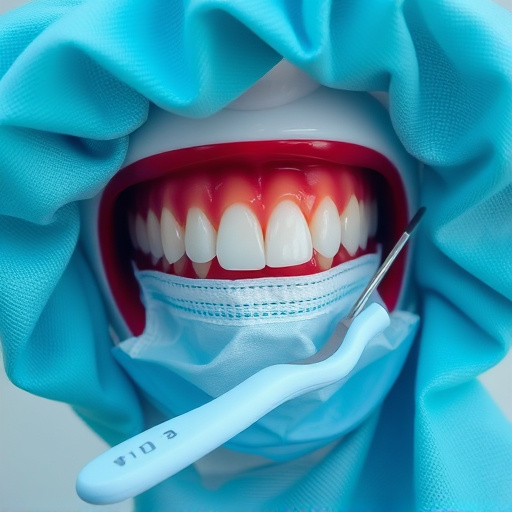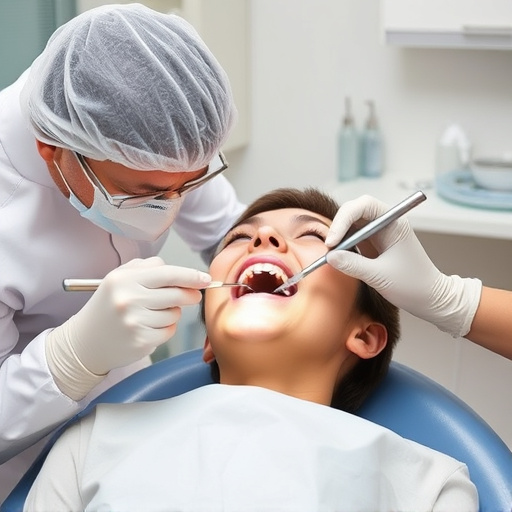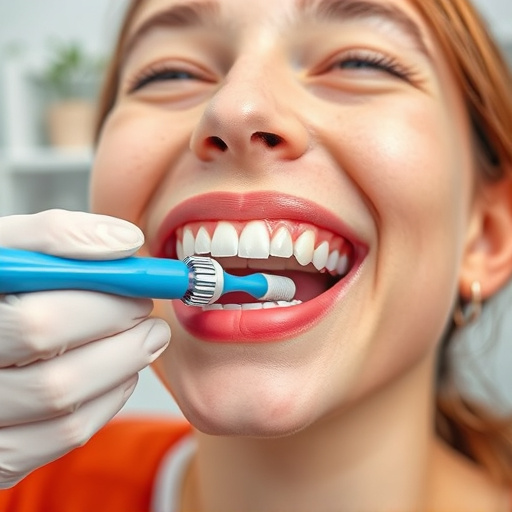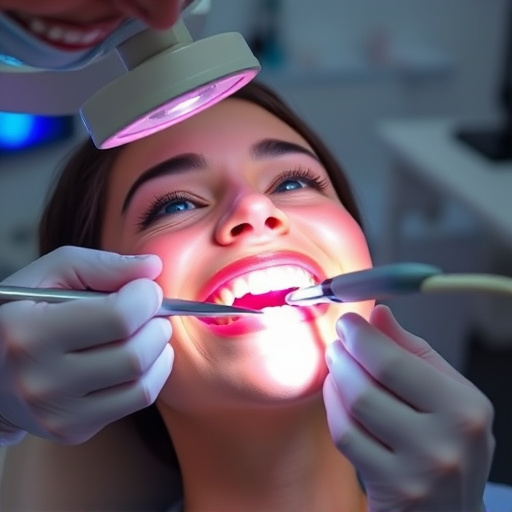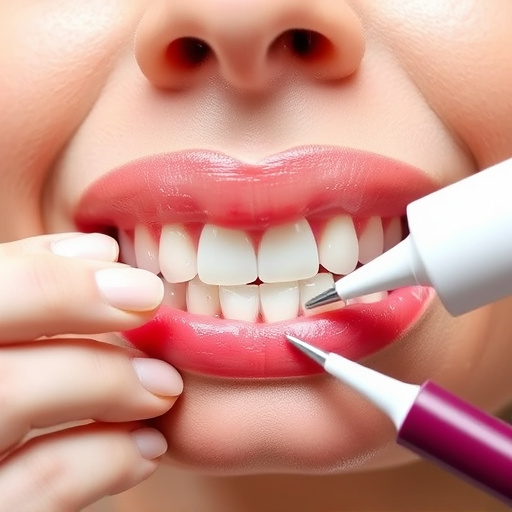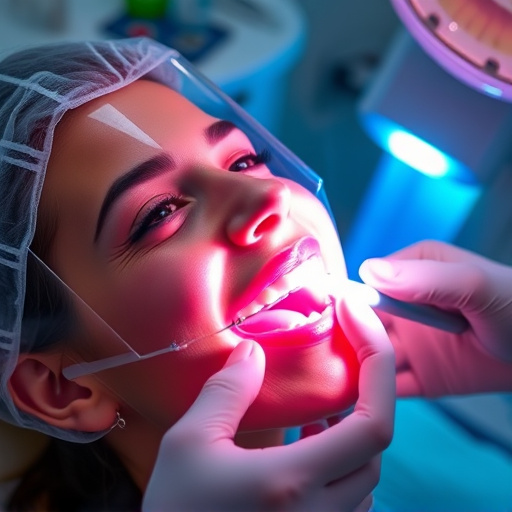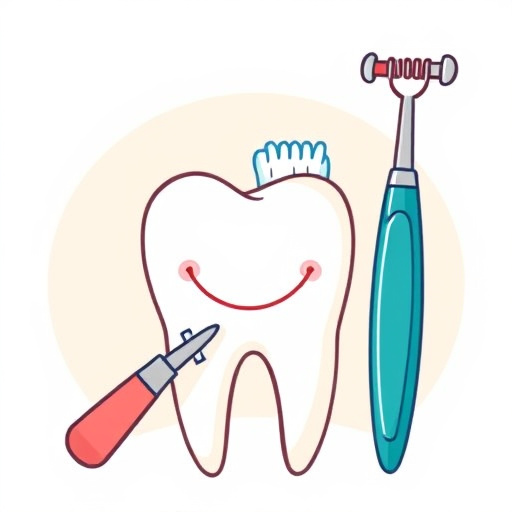Oral hygiene education is a powerful tool for promoting children's overall well-being, empowering them to take control of their health, boost confidence, and engage in social activities. By making it fun and interactive using visual aids, demonstrations, and games, parents can instill good dental habits from a young age. Regular morning and bedtime brushing sessions prevent issues like tooth decay and bad breath, positively impacting self-esteem and overall development. Early education sets the foundation for healthy smiles and successful future interactions with children's dentistry.
Oral hygiene education plays a pivotal role in fostering self-confidence in children. By teaching young minds about the importance of healthy teeth and gums, we empower them to take charge of their oral care, leading to improved confidence in their appearance and overall well-being. This article explores effective strategies and practical tips for integrating oral hygiene education into daily routines, ensuring kids not only develop excellent habits but also gain the confidence to smile brightly.
- Understanding the Significance of Oral Hygiene for Children's Confidence
- Strategies to Effectively Teach Kids About Oral Care
- Incorporating Oral Hygiene Education into Daily Routines
Understanding the Significance of Oral Hygiene for Children's Confidence
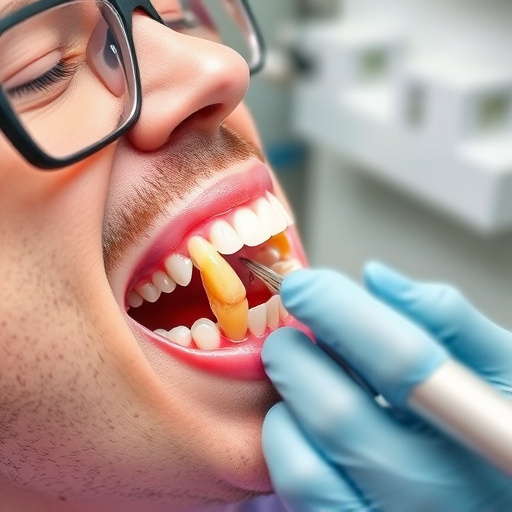
Oral hygiene is a cornerstone of overall health and well-being, especially for children. Beyond preventing tooth decay and gum disease, proper oral care significantly impacts a child’s confidence and self-esteem. A bright, healthy smile can boost their willingness to socialize, speak in public, or even try new foods, fostering a positive self-image that extends beyond their teeth.
When kids learn about the importance of brushing, flossing, and regular dental check-ups through oral hygiene education, they develop a sense of agency over their health. This knowledge empowers them to make better choices regarding their mouths, reducing the need for procedures like cosmetic fillings or, in severe cases, tooth extractions. By instilling good habits from a young age, parents and caregivers can help children avoid dental issues that might otherwise cause anxiety or embarrassment, allowing them to focus on growing up with confidence and a positive attitude towards their oral health.
Strategies to Effectively Teach Kids About Oral Care
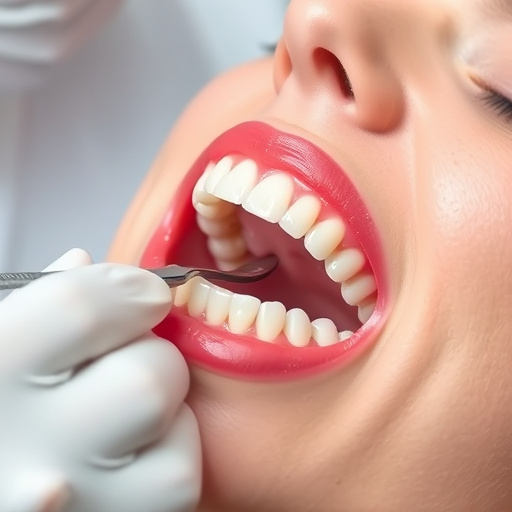
Teaching kids about oral care is a crucial aspect of their overall health and well-being. Start by making it fun and interactive. Use visual aids like charts or models to demonstrate the importance of brushing, flossing, and regular dental visits. Engage them with simple language and relatable examples; for instance, explaining that cavities are holes in teeth caused by sugar monsters can make learning more enjoyable. Incorporate storytelling, songs, or games related to oral hygiene to capture their attention and reinforce good habits.
Incorporating practical demonstrations is another effective strategy. Allow children to observe you brushing and flossing your teeth, then let them try under supervision. You could also introduce them to various dental tools and products designed for kids, such as age-appropriate toothbrushes and fluoride toothpaste. Moreover, discussing the role of oral hygiene in preventing common issues like tooth decay, bad breath, and gum disease can help boost their confidence as they take ownership of their dental care. Remember, a solid foundation in general dentistry practices, including regular check-ups and appropriate treatments like clear aligners or cosmetic fillings, can set kids up for a lifetime of healthy smiles.
Incorporating Oral Hygiene Education into Daily Routines
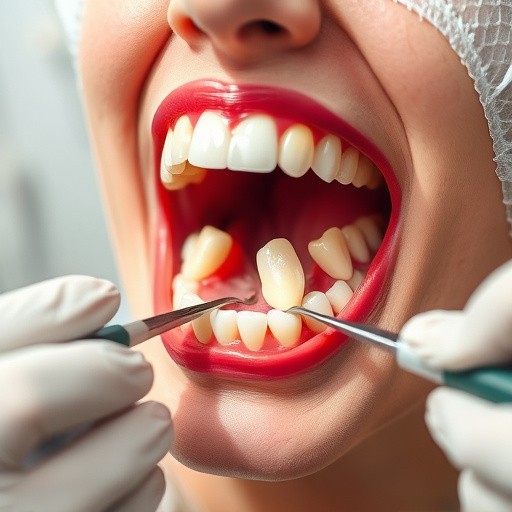
Incorporating oral hygiene education into daily routines is a key strategy for fostering good habits from a young age. Start by making it a fun and engaging process, teaching kids about the importance of brushing and flossing in simple terms they can understand. This can be done through interactive games, songs, or even using colorful dental care products designed specifically for children. Make sure to set a consistent routine; brushing and flossing should become as integral a part of their day as eating or bathing.
Regular practice is just as vital as the education itself. Establish a routine that includes morning and bedtime oral hygiene sessions. This consistency will not only help prevent dental issues but also boost your child’s confidence in maintaining good oral health. Remember, preventive dentistry is about empowering children to take charge of their dental care, which can positively impact their overall well-being and self-esteem. Incorporating these habits early on sets them up for success in their future visits to the children’s dentistry office, ensuring healthy teeth and a bright smile.
Oral hygiene education is a powerful tool to boost children’s confidence and set them on a path towards a healthy, happy future. By implementing these strategies and seamlessly integrating oral care into daily routines, parents and caregivers can empower kids to take charge of their dental health, fostering self-assurance and a positive relationship with their teeth for years to come.
